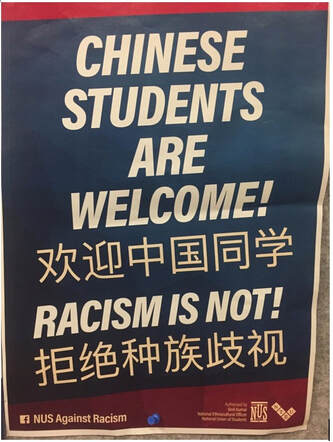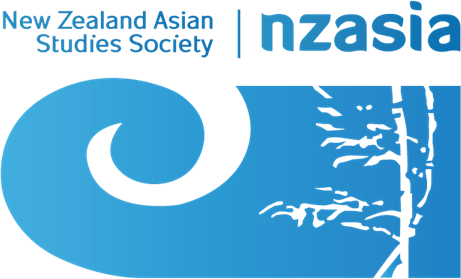 Fig.1 Poster found at the University of Sydney – National Union of Students (NUS) Fig.1 Poster found at the University of Sydney – National Union of Students (NUS) Introduction As 2020 nears its inevitable end, it is fair to say that for many of us it will be probably the most remarkable year in our living memory. This brief overview takes a cursory glance at the evolving Australia-New Zealand-China relationship amidst dramatically shifting global power-politics. Many commentators have remarked that New Zealand is now where Australia was geo-politically three years ago and for this reason alone it is worthwhile to consider our shared Sino-history.[1] Background history During these extraordinary times, perhaps it is unsurprising that global brinkmanship in the age of ‘truthiness’ is espoused at fever-pitch by a gaggle of populist curmudgeons the world over. To make matters worse, our crisis in political zeitgeist is exacerbated by a biological one with the Covid-19 pandemic lending fuel to the fire of international geo-political rivalries. Australia, New Zealand and the United States on one side of a hypothetical fulcrum with China, Japan and the Koreas on the other, have a long and complex international historical relationship that has developed through all-out conflicts into a precarious yet somewhat stable multilateral partnership. However, this relative equilibrium amidst the global pandemic has been cast into the international limelight due to China’s increasingly assertive role in the Asia-Pacific region. As Australia’s and New Zealand’s major trading partner, relationships with China are long-term, led to enduring prosperity and unprecedented bilateral friendship across the Asia-Pacific region. Australia has mostly kept silent about Chinese expansionism,[2] the crack down on Democracy in Hong Kong,[3] and the abandoning of the two-term limit for Xi Jinping’s presidency to declare himself leader for life, [4] outperforming Vladimir Putin’s attempts to become Russia’s eternal leader.[5] Similarly, New Zealand has focused on maintaining friendly international relations and prioritised its domestic economy. Contemporary Issues Yet, similar events across the Tasman have brought New Zealand on a collision course with one of Asia’s most-impressive economic juggernaut. Most recently, Chinese interference via political donations that are used to forge relationships to promote Beijing’s views in local media and support them internationally seem to jeopardise New Zealand’s political processes.[6] Here, also, Australia and New Zealand have remarkably similar experiences with political figures being co-opted by Chinese financial investments. Most notoriously, an ambitious young Australian senator, Sam Dastyari, was exposed for parroting Communist Party campaign points and giving countersurveillance advice to a Chinese political donor before being hounded into premature retirement.[7] Likewise, New Zealand’s National party MP Todd McClay is similarly infamous for receiving ‘legal’ donations of NZ$150, 000 (US$99,000) from China-based businessman, Lang Lin. The funds were given via Lang’s New Zealand-registered company with the quixotic name Inner Mongolia Rider Horse. The lawmaker later referred to the forced indoctrination camps for Muslim minorities in Xinjiang as ‘vocational training centers,’ echoing the terminology used by the Chinese government and state media to justify was is presumed to be mass detentions.[8] New Zealand’s recent suspension of its extradition treaty with Hong Kong as well as its policy on military and dual-use goods and technology exports to Hong Kong as a result of Hong Kong’s new national security law, earned it the ire of China’s ambassador to New Zealand, Wu Xi, who accused Wellington of ‘gross interference’ in China’s internal affairs. Just like Australia, relations with China appear at a crossroads. Furthermore, these primarily economic-political accoutrements, recently spilled over into academic discourse when New Zealand-China scholar Professor Anne-Marie Brady published her controversial ‘Holding a Pen in One Hand, Gripping a Gun in the Other.’ Due to four formal complaints from academic staff at other universities and at the University of Canterbury, an internal review to ‘test the veracity of the claims,’ was initiated, which also led to personal vilification that have turned her life up-side down.[9] This is not unheard of in Australian political circles, with a former list of seven areas of disagreement, listed previously that Foreign Ministry spokesperson Zhao Lijian, now extended by Beijing to a ‘List of Grievances’ with Australia including fourteen items. The full list of the grievances has been released by Eryk Bagsahaw on Twitter of all places,[10] mirroring the insouciance of Trumpism. Yet all this marks merely the pointy tip of a metaphorical iceberg, calamitously floating in a globally-warmed ocean of discontent. Australia’s strict foreign interference laws, the country’s ban on Huawei's involvement in its 5G network – followed by New Zealand - and decisions that blocked Chinese investment projects on ‘national security grounds’ are some of the other roadblocks imposed on China. Not surprisingly this has led to retaliatory bans on agricultural goods including beef, barley and timber and most recently terrifying tariffs with devastating consequences for the Australian wine industry.[11] A recent bolstering of defence relations with Japan’s new Prime Minister Yoshihide Suga is widely viewed as aimed at countering Chinese influence in the region. As if this grandstanding superciliousness is not enough, Prime-Minister Scott Morrison’s erudite ‘Australia will always be Australia’[12] was trumped by Chinese government official suggestion that ‘if you make China the enemy, China will be the enemy, a Chinese government official reportedly told three prominent media outlets. [13] Towards a common future The way forward for Australia and New Zealand is complicated and will most certainly have economic repercussions. In Australia, China has been accused of many things from ‘coercive diplomacy,’ to the passive-aggressive ‘carrot and stick economics,’ but New Zealand has not yet felt the ‘brunt’ of Chinese disgruntlement. The flip side of the coin is of course that one can hardly blame China for taking advantage of the opportunities presented during the declining Australian official development assistance (ODA) support,[14] reaching a historical low point in 2019, or the lack of interest from the United States in the South Pacific region during its ‘America First’ policy. As the poster from grassroots campaigns in Sydney exemplify (fig 1), the Australian Chinese community and its culture has become an integral part of Australian and undoubtedly New Zealand multicultural cognizance. China is smart and has been dealt a difficult hand with the outbreak of the Corona Virus, but the world can scarcely afford being led astray by a group of egotistical megalomaniacs – and there appear to be many the world over. With the era of Trump almost over, the neo-liberalism of Abenomics probably behind us, but the threat of North Korea remaining, what the world needs is a China’s age-old wisdom and the nation’s historical taoguang yanghui (keep a low profile and bide your time) strategy to navigate the troubled waters of the global pandemic. Concluding notes: At the time of writing this review, tensions with China are escalating rapidly due to the release of a Twitter post by the Deputy Director of Foreign Ministry Information Department Zhao Lijian, which depicts a fake image of an Australian soldier in Afghanistan holding a knife to a child’s throat, signalling a more aggressive display of China’s Wolf Warrior diplomacy and further escalating the tension between the two nations. Short Bibliography Anne-Marie Brady (with Jichang Lulu and Sam Pheloung), ‘Holding a Pen in One Hand, Gripping a Gun in the Other: China’s Exploitation of Civilian Channels for Military Purposes in New Zealand.’ July 2020. Online at: <https://www.wilsoncenter.org/sites/default/files/media/uploads/documents/2020-07-HoldingAPenInOneHand-Brady.pdf>. Accessed: 24 November 2020. Jian Yang, The Pacific Islands in China's Grand Strategy: Small States, Big Games. London: Palgrave, 2011. Bates Gill and Linda Jakobson, China Matters: Getting it Right for Australia. Carlton, VIC: La Trobe University Press, 2017. [1] Anne Marie Brady, ‘New Zealand's relationship with China is at a tipping point,’ in The Guardian, 31 July 2020.Online at: <https://www.theguardian.com/world/2020/jul/31/new-zealands-relationship-with-china-is-at-a-tipping-point>. Accessed: 23 November 2020. [2] James Massola, ‘China wants a compliant Australia, Malcolm Turnbull says,’ in Sydney Morning Herald, 25 June 2020. <https://www.smh.com.au/world/asia/china-wants-a-compliant-australia-malcolm-turnbull-says-20200623-p555a0.html>. Accessed: 22 November 2020. [3] Al Jazeera, ‘ “Five Eyes” group slams China crackdown on Hong Kong legislators,’ 19 November 2020. <https://www.aljazeera.com/news/2020/11/19/five-eyes-alliance-tells-china-to-end-hong-kong-crackdown>. Accessed: 22 November 2020. [4] Kirsty Needham, ‘China changes its rules for leaders, prompting talk of Mao,’ in Sydney Morning Herald. Online at: <https://www.smh.com.au/world/asia/china-changes-its-rules-for-leaders-prompting-talk-of-mao-20180226-p4z1sg.html>. See also: <https://www.bbc.com/news/world-asia-china-43361276>. [5] Isabelle Khurshudyan, ‘Putin once told Russians he didn’t want to be the ‘eternal president.’ Now it appears he does,’ in Washington Post, 12 March 2020. Online at: <https://www.washingtonpost.com/world/europe/putin-once-told-russians-he-didnt-want-to-be-the-eternal-president-now-it-appears-he-does/2020/03/11/5391b5f0-638e-11ea-8a8e-5c5336b32760_story.html>. Accessed 29 November 2020. [6] Anne-Marie Brady, ‘New Zealand needs to show it's serious about addressing Chinese interference,’ in The Guardian, 24 January 2020. Online at: <https://www.theguardian.com/world/commentisfree/2020/jan/24/new-zealand-needs-to-show-its-serious-about-addressing-chinese-interference>. Accessed: 29 November 2020. [7] John Garnout, ‘How China Interferes in Australia: And How Democracies Can Push Back,’ in Foreign Affairs, 9 March 2018. Online at: <https://www.foreignaffairs.com/articles/china/2018-03-09/how-china-interferes-australia>. Accessed 29 November 2020. [8] See the extensive analytical article by Sarah Cook, ‘The Expansion of Chinese Communist Party Media Influence since 2017.’ Online at: <https://freedomhouse.org/report/special-report/2020/beijings-global-megaphone>. Accessed 22 November 2020. [9] Eleanor Ainge, ‘I’am being watched’: Anne-Marie Brady, the China critic living in fear of Beijing,’ in The Guardian, 23 January 2019. Online at: < https://www.theguardian.com/world/2019/jan/23/im-being-watched-anne-marie-brady-the-china-critic-living-in-fear-of-beijing>. Accessed: 24 November 2020. See also the official University response: ‘Academic review responding to complaints about Professor Brady’s paper,’ 20 October 2020. Online at: <https://www.canterbury.ac.nz/news/2020/academic-review-responding-to-complaints-about-professor-bradys-paper.html>. Accessed: 1 December 2020. [10] Eryk Bagshaw is the China correspondent for The Sydney Morning Herald and The Age. <https://twitter.com/ErykBagshaw/status/1328983898911457280>. Accessed: 29 November 2020. [11] Ben Butler and Helen Davidson, ‘China imposes swingeing tariffs on Australian wine in 'devastating blow' to exporters,’ in The Guardian, 27 November 2020. Online at: <https://www.theguardian.com/business/2020/nov/27/china-imposes-swingeing-tariffs-on-australian-wine-in-devastating-blow-to-exporters>. Accessed 29 November 2020. [12] Kirsty Needham, ‘Australia “will always be Australia,” PM responds to China grievances,’ in Reuters, 19 November 2020. Online at: <https://www.reuters.com/article/us-australia-china-diplomacy-idUSKBN27Y349>. Accessed: 29 November 2020. [13] Jonathan Kearsley, Eryk Bagshaw and Anthony Galloway, ‘If you make China the enemy, China will be the enemy: Beijing's fresh threat to Australia,’ in Sydney Morning Herald, 18 November 2020. Online at; <https://www.smh.com.au/world/asia/if-you-make-china-the-enemy-china-will-be-the-enemy-beijing-s-fresh-threat-to-australia-20201118-p56fqs.html>. Accessed: 29 November 2020. See also: < https://www.ndtv.com/world-news/australian-pm-scott-morrison-rebuffs-chinese-grievance-list-2327259>. [14] Lowy Institute, ‘Australian Foreign Aid.’ Online at: <https://www.lowyinstitute.org/issues/australian-foreign-aid>. Accessed: 29 November 2020.
0 Comments
Leave a Reply. |
The views expressed in these blogs are not those of the NZASIA Executive and reflect the personal views of the blog authors.
Archives
December 2023
Categories |

 RSS Feed
RSS Feed
